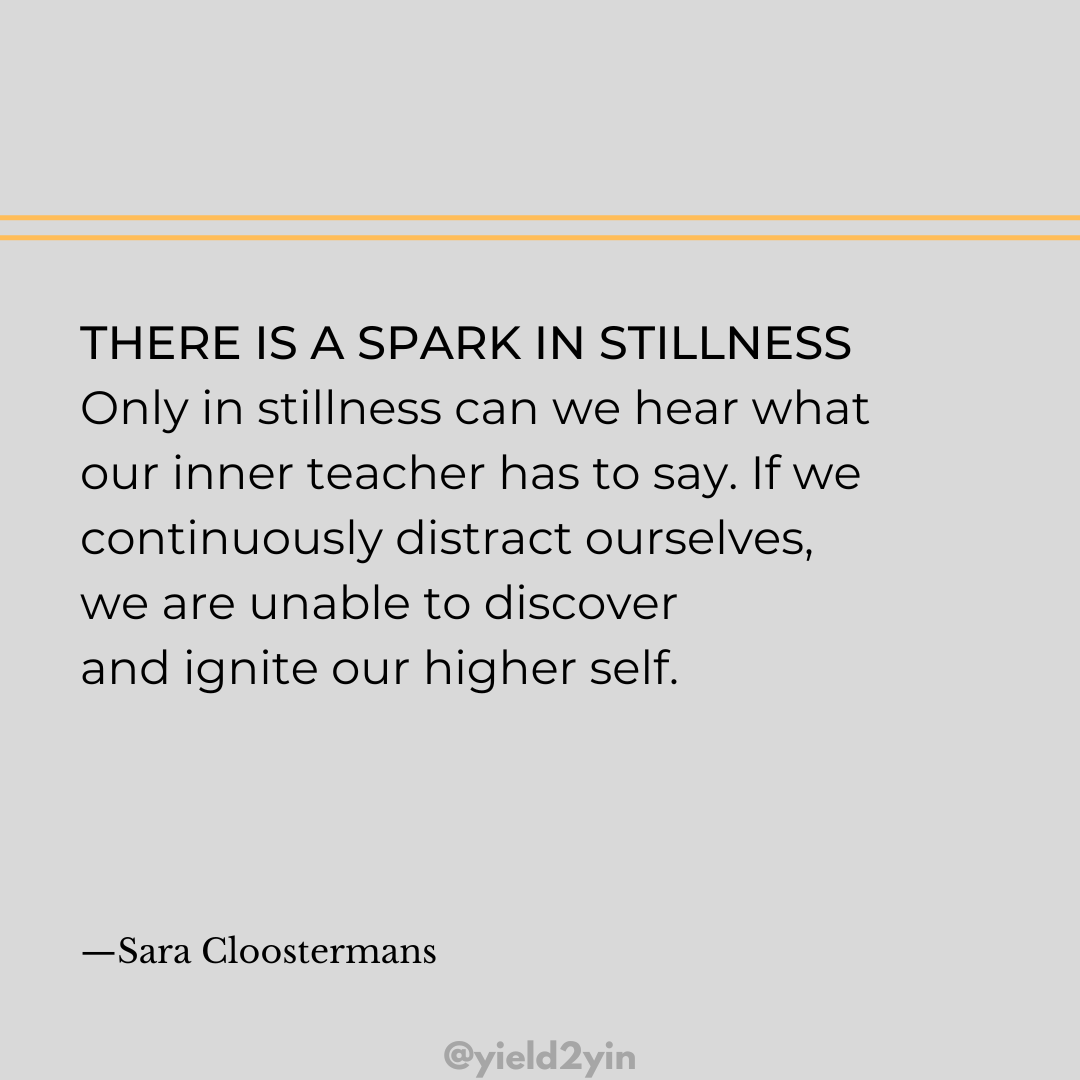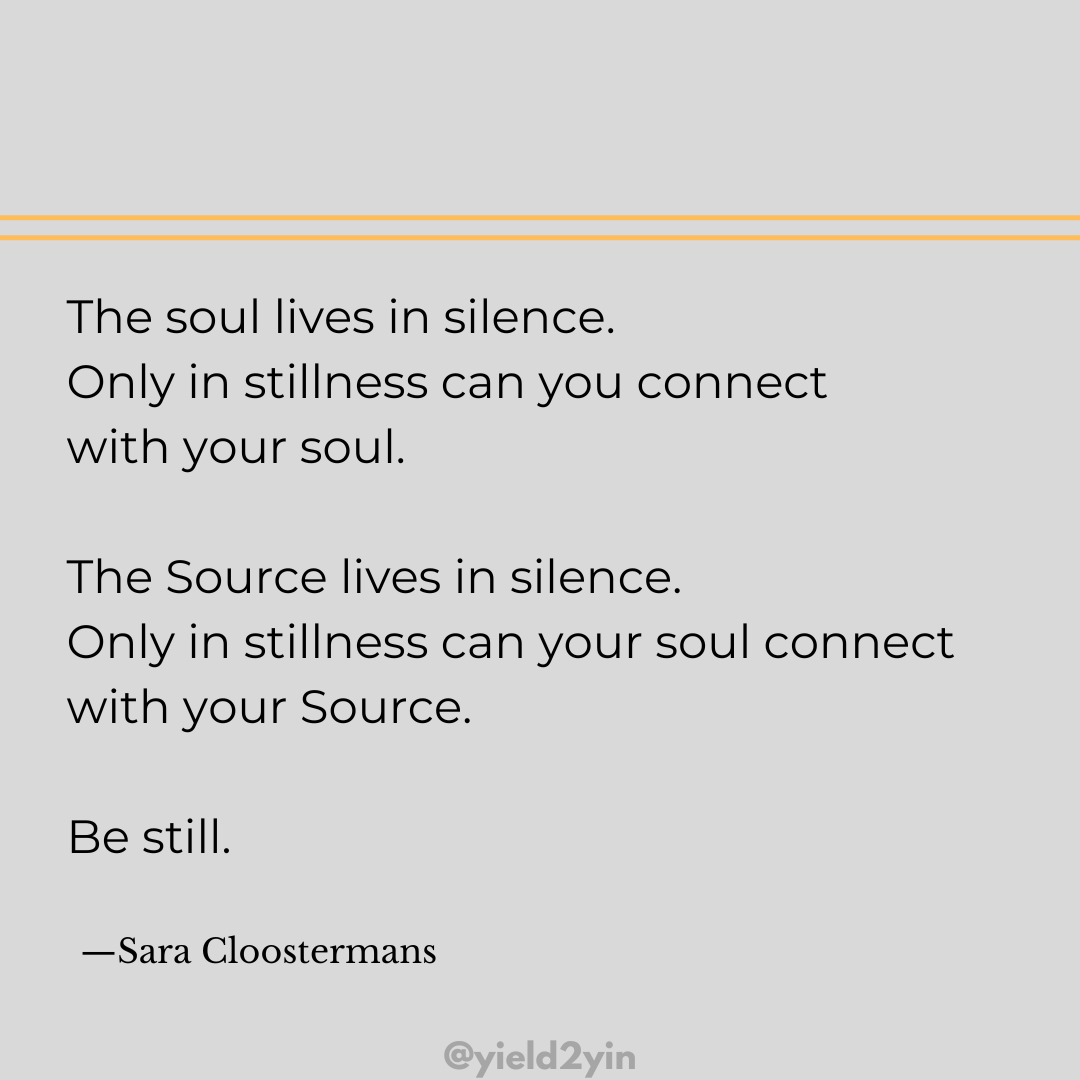We recently talked about creating a safe holding space for a grieving loved one. That’s when you carefully see them through their mourning journey by using communication skills that show acceptance and understanding, genuine empathy, as well as care and support.
Those three communication skills are:
- Actively listening without interruption
- Validating without the need to fix anything
- Reflecting back feelings without adding interpretations
These same communication skills are some of the “basic attending skills” used in counseling to deepen the connection between the therapist and the client. They are meant to encourage clients to safely share their vulnerabilities with the hope that, because there is now a “shared experience” through storytelling, the clients’ emotional burden becomes lighter as time goes on.
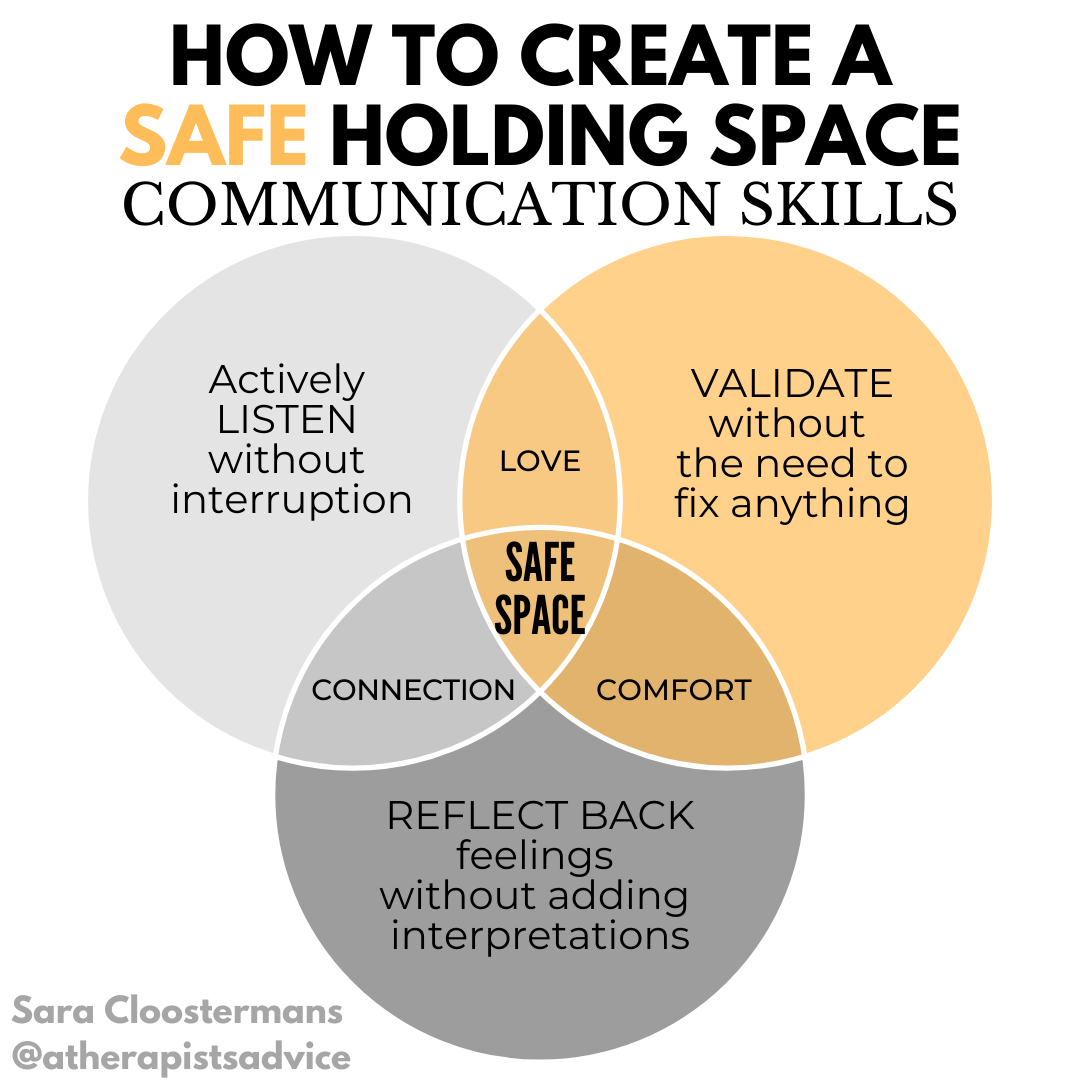
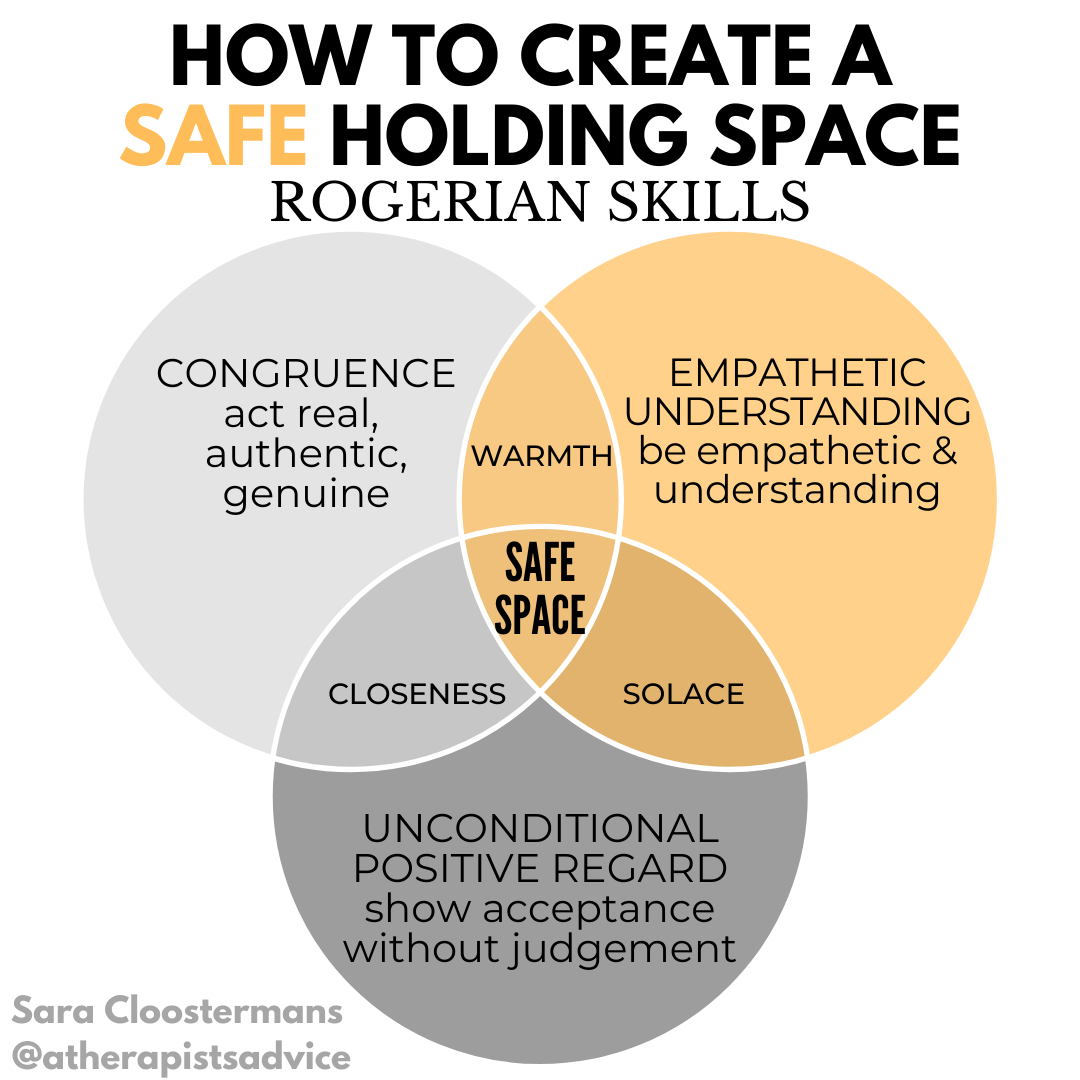
This work is not easy.
That’s why it’s important to consider boundaries when caring for a grieving person.
Being there for someone through what may be their most painful or, depending on the type of loss, the most traumatic time in their life, is extremely hard and is not for everyone.
If this is beyond your capabilities, that is completely fine too. What I feel you do owe the grieving person, however, is that you make a mindful decision about whether or not you are cut out for this type of work.
Let’s take a closer look at boundaries when caring for a grieving person. First for those who choose to step up and hold space for their loved one. Then for those who choose not to (both are valid decisions).
Choosing to hold space for somebody who is grieving…
If you decide to hold space for your loved one who is grieving, make sure you take slow and full breaths during your time together, so you can let the energy pass through you.
Regardless of how hard you try to detach yourself energetically, it is likely that you will still carry some of the heaviness with you after your get-together. Therefore, I recommend that you take out some transition time and practice a yield2yin technique before stepping into your next role. This could include:
- Walking
- Stretching/yoga
- Breathing exercises
- Meditation
- Shower/bath
- Calming music/reading a poem
- Time with your pets
- Repeating the serenity prayer
- So many more found HERE
(Related Reading: Push Pause: Finding Calm After An Emotional Storm)
Set a block of time aside to dedicate solely to the grieving person—actually schedule it in your calendar the way you schedule any meeting—so you have a sense of when the interaction begins and when it will end. This allows them to feel fully seen and heard. It also sets a boundary around the time you are willing to take care of somebody else.
Finally, read through the list of things to say and not to say to a grieving friend. This will give you confidence when speaking and will protect your loved one’s emotional state.
Choosing NOT to hold space for someone who is grieving …
If you choose not to hold space for someone who is experiencing a loss, that is absolutely an acceptable choice too. You may simply be the type of person who does not trust themselves to have the appropriate communication skills to be attentive and supportive to someone who is in a lot of pain. If you risk hurting the person in need of comfort as opposed to helping them, then not being present in this manner is indeed the preferred way to go during their time of grief.
I am a big proponent of working within our boundaries and limitations with regard to what we have to bring to the table.
Another reason to decide against holding space for someone may be that we are spread too thin ourselves. You may be knee-deep in your own grief, have severe health issues, or have major financial concerns due to a recent job loss. This may not be the time in your life to take on sharing someone’s burden of grief and loss.
There is no need to feel guilty about not having the emotional bandwidth; keep in mind that this too fluctuates constantly. It depends on the particular time in your life you find yourself in (with its specific stressors).
If you are not feeling equipped for the task of creating a safe holding space, but you ignore your limitations, there is a risk that you will barge into the grieving person’s fragile emotional space like a bull in a china shop and create even more pain and sadness. I know that this would never be your intention, but then again intention and impact can be two very different things.
If you want to play it safe and be sure you will make a positive impact, show love with a DIY care package instead.
When Their Grief Triggers You
Das Leben ist immer lebensgefährlich
(Life is always life-threatening)
Erich Kaestner
Because we all know that “life is always life-threatening,” a lot of us feel triggered around grief and loss. We know that at some point, it is our turn to die. We just don’t know when and how. The not-knowing adds to our fear of death.
A lot of us struggle with tolerating uncertainties. The time and cause of death are some of the biggest uncertainties “alive,” especially in our western culture. We are “deadly” afraid of dying (pun intended both times 😉). We hope that, by not facing the notion of death, it somehow presents us with fewer risks and buys us more years.
Unfortunately, this is not how it works; there is not necessarily any logic around the time and cause of death, and this can seem extremely unfair. Someone who has never had a sip of alcohol can die from liver cancer at a young age and someone who has been an alcoholic most of their life can still be stumbling around in their nineties.
Stop ignoring the pain of the bereaved or minimizing their sorrow to make yourself feel better: it will make them feel worse. Don’t make it about you and protecting your feelings. Set your narcissistic tendencies aside when it comes to others’ grief and loss experiences. Put yourself in their shoes and be willing to see the missing hole in their heart, which will be there forever.
That doesn’t mean you have to take on the primary role of caretaker, but it does mean you should handle the situation with empathy and respect.
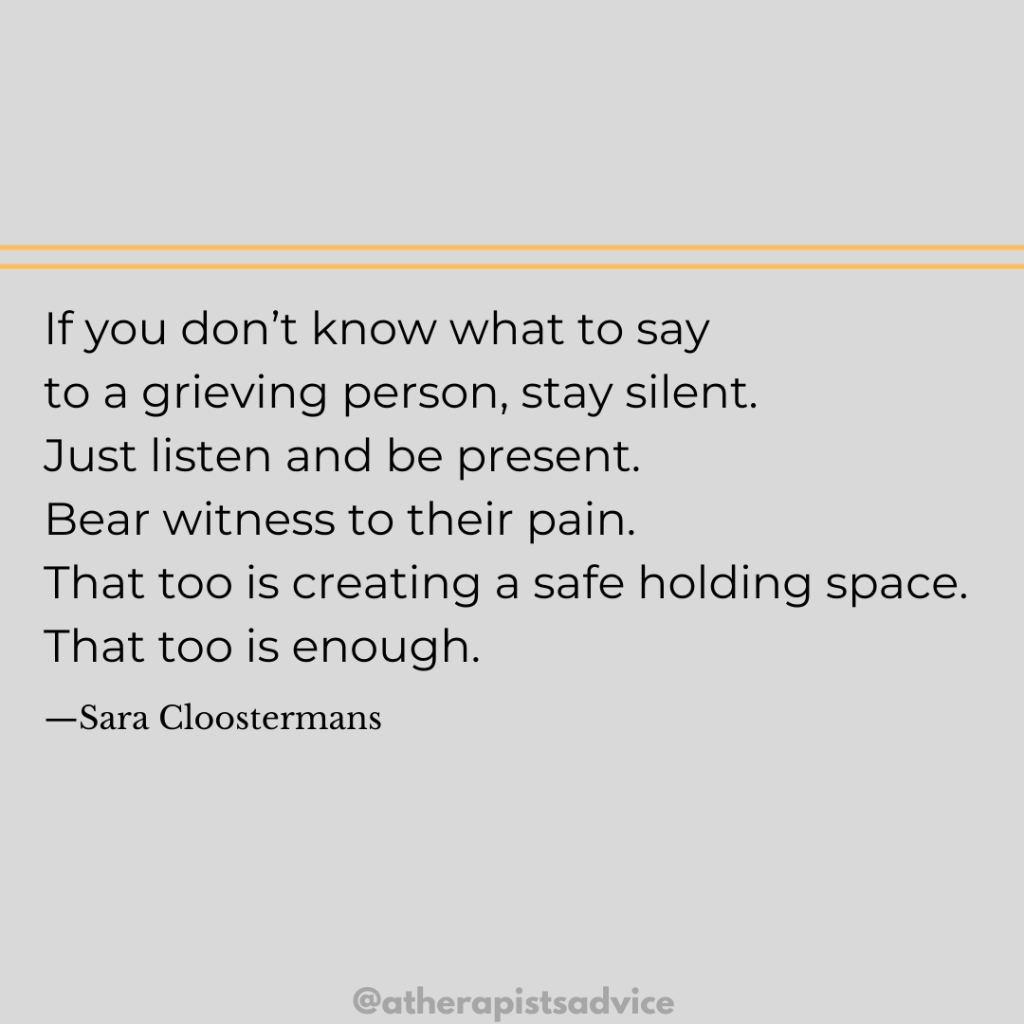
Yield2Yin
- Book Recommendation: Set Boundaries, Find Peace: A Guide To Reclaiming Yourself by Nedra Glover Tawwab
- Mantra: I AM CONNECTION // repeat with diaphragmatic breathing
- Yin Yoga Pose: Square Pose
This page includes Amazon Associate affiliate links, which means I may earn a small commission at no cost to you if you purchase a product I suggest. I only recommend products I believe in. Learn more HERE.






